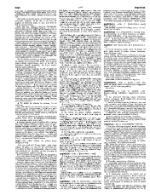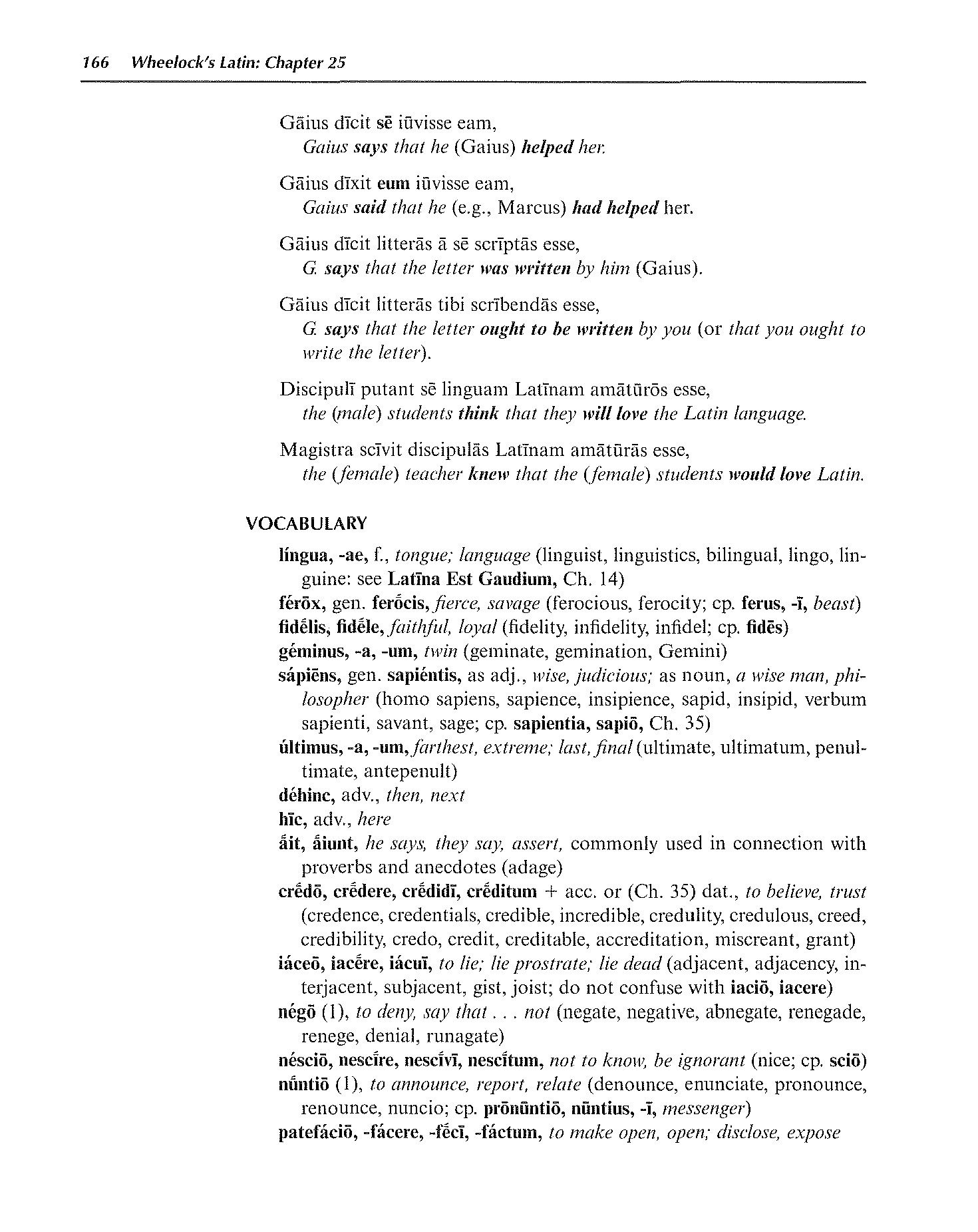
page_listing.tpl
page_subListingDetails.tpl
sub_listingDetails_style1.tpl
sub_listingDetails.title.tpl
negāre to deny
negāre is a Latin Verb that primarily means to deny.
Definitions for negāre
Wheelock's Latin
Verb
- 1
to deny, say that ... not
English derivatives:
negate negative abnegate renegade renege denial runagate
Oxford Latin Dictionary
Verb
- 1
(w. acc. and inf.) To say (that..not), deny (that). (b) (pass., w. inf.) to be said (not to). (c) to deny (a fact or statement); also, to deny the existence of. (d) (ellipt. or intr.) to say no (to a question), make a denial.
- 2
To refuse to give or grant, deny, withhold (something requested). (b) (of things). (c) (refl.) to refuse one's services or sim. (d) to refuse to take.
- 3
(w. inf.) To decline, refuse (to).
- 4
(ellipt. or intr., w. dat.) To say no (to a request of a person making a request), refuse, decline. (b) (spec.) to refuse an invitation to dinner. (c) to refuse one's hand in marriage or (euphem.) one's sexual favours. (d) (of a thing) to withhold its support, fail; also, to stand in the way.
- 5
To refuse to allow, forbid, disallow. (b) (w. acc. and inf.) to forbid (something to happen).
Sentences with negāre
Latin to English
Cum exposuisset quid peteret, negāvistī tantum auxilium posse offerrī.Compare When he had explained what he was seeking, you (sg.) said that such great aid could not be offered.
Quīdam negant mentēs quidem omnium hominum esse parēs.Compare Certain men say that all men's minds at least are not equal.
Tongilianus habet nasum scio, non nego. Sed iam nil praeter nasum Tongilianus habet.Compare Tongilianus has a nose: I know, I don't deny it. But now Tongilianus has nothing but a nose.
Possum igitur principium nego, quum extremus concedo?Compare Can you then deny the premises, when you grant the conclusions?
Negāvit sē velle in istā terrā multos diēs remanēre.Compare He said that he did not want to stay in that country of yours many days.
Qui tacet, non utique fatetur, sed tamen verum est eum non negare.Compare Though silence is not necessarily an admission, it is not a denial, either.
Conjugation table for negāre
Cactus2000
| ACTIVE | |
| Indicative present | Indicative imperfect |
| negō negās negat negāmus negātis negant | negābam negābās negābat negābāmus negābātis negābant |
| Indicative perfect | Indicative pluperfect |
| negāvī negāvistī negāvit negāvimus negāvistis negāvērunt / negāvēre | negāveram negāverās negāverat negāverāmus negāverātis negāverant |
| Indicative future | Indicative future perfect |
| negābō negābis negābit negābimus negābitis negābunt | negāverō negāveris negāverit negāverimus negāveritis negāverint |
| Subjunctive present | Subjunctive imperfect |
| negem negēs neget negēmus negētis negent | negārem negārēs negāret negārēmus negārētis negārent |
| Subjunctive perfect | Subjunctive pluperfect |
| negāverim negāveris negāverit negāverimus negāveritis negāverint | negāvissem negāvissēs negāvisset negāvissēmus negāvissētis negāvissent |
Infinitive present negāre Infinitive perfect negāvisse Infinitive future negātūrum esse | Imperative present negā negāte Imperative future negātō negātō negātōte negantō |
| PASSIVE | |
| Indicative present | Indicative imperfect |
| negor negāris negātur negāmur negāminī negantur | negābar negābāris / negābāre negābātur negābāmur negābāminī negābantur |
| Indicative perfect | Indicative pluperfect |
| negātus sum negātus es negātus est negātī sumus negātī estis negātī sunt | negātus eram negātus erās negātus erat negātī erāmus negātī erātis negātī erant |
| Indicative future | Indicative future perfect |
| negābor negāberis / negābere negābitur negābimur negābiminī negābuntur | negātus erō negātus eris negātus erit negātī erimus negātī eritis negātī erunt |
| Subjunctive present | Subjunctive imperfect |
| neger negēris / negēre negētur negēmur negēminī negentur | negārer negārēris / negārēre negārētur negārēmur negārēminī negārentur |
| Subjunctive perfect | Subjunctive pluperfect |
| negātus sim negātus sīs negātus sit negātī sīmus negātī sītis negātī sint | negātus essem negātus essēs negātus esset negātī essēmus negātī essētis negātī essent |
Infinitive present negārī Infinitive perfect negātum esse Infinitive future negātum īrī | Imperative present negāre negāminī Imperative future negātor negātor - negāntor |
| PARTICIPLE | ||
| Participle present active | ||
| Nom. | negāns | negantēs |
| Gen. | negantis | negantium |
| Dat. | negantī | negantibus |
| Acc. | negantem | negantēs |
| Abl. | negante | negantibus |
| Participle future active | ||
| Nom. | negātūrus | negātūrī |
| Gen. | negātūrī | negātūrōrum |
| Dat. | negātūrō | negātūrīs |
| Acc. | negātūrum | negātūrōs |
| Abl. | negātūrō | negātūrīs |
| Participle perfect passive | ||
| Nom. | negātus | negātī |
| Gen. | negātī | negātōrum |
| Dat. | negātō | negātīs |
| Acc. | negātum | negātōs |
| Abl. | negātō | negātīs |
| Gerundive | ||
| Nom. | negandus | negandī |
| Gen. | negandī | negandōrum |
| Dat. | negandō | negandīs |
| Acc. | negandum | negandōs |
| Abl. | negandō | negandīs |
| Gerund | Supine | |
| Nom. | negāre | negātum |
| Gen. | negandī | negātū |
| Dat. | negandō | |
| Acc. | negandum | |
| Abl. | negandō | |
Data sources
Notes
- Definitions
- Frederick M. Wheelock, Wheelock's Latin, 6th ed., rev. Richard A. LaFleur (New York, NY: HarperCollins Publishers, 2005): 166.
- P. G. W. Glare, Oxford Latin Dictionary, Vols. 1-8 (Oxford: Clarendon Press, 1982): 1168.
- Word frequencies
- Christopher Francese, "Latin Core Vocabulary," Dickinson College Commentaries, last modified 2014, http://dcc.dickinson.edu.
- Paul B. Diederich, The Frequency of Latin Words and Their Endings, PhD diss., (Columbia University, 1939).
- Louis Delatte, Suzanne Govaerts, Joseph Denooz, and Etienne Evrard, Dictionnaire fréquentiel et index inverse de la langue latine [Frequency Dictionary and Inverse Index of the Latin Language] (Liège, Belgium: Laboratoire d'analyse statistique des langues anciennes de l'Université de Liège [L.A.S.L.A.], 1981): 121.
Bibliography
Allen, Joseph H. Allen and Greenough's New Latin Grammar for Schools and Colleges: Founded on Comparative Grammar. Edited by James B. Greenough, George L. Kittredge, Albert A. Howard, and Benjamin L. D'Ooge. Boston, MA: Ginn & Company, 1903.
Crystal, David. A Dictionary of Linguistics and Phonetics. 6th ed. Oxford, UK: Blackwell Publishing, 2008.
Delatte, Louis, Suzanne Govaerts, Joseph Denooz, and Etienne Evrard. Dictionnaire fréquentiel et index inverse de la langue latine [Frequency Dictionary and Inverse Index of the Latin Language]. Liège, Belgium: Laboratoire d'analyse statistique des langues anciennes de l'Université de Liège (L.A.S.L.A.), 1981.
Diederich, Paul B. The Frequency of Latin Words and Their Endings. PhD diss., Columbia University, 1939.
Francese, Christopher. "Latin Core Vocabulary." Dickinson College Commentaries. Last modified 2014. http://dcc.dickinson.edu/latin-vocabulary-list.
Gildersleeve, Basil L., and Gonzales Lodge. Gildersleeve's Latin Grammar: Third Edition, Revised, and Enlarged. 3rd ed. London, England: Macmillan and Co., 1903.
Glare, Peter G.W. Oxford Latin Dictionary. Vols. 1-8. Oxford, England: Clarendon Press, 1982.
Krüger, Bernd. "Latin Conjugation Tables." Cactus2000. Accessed May 5, 2023. https://latin.cactus2000.de/index.en.php.
Pierson, Nick. "Sound of Text." Accessed October 26, 2019. https://soundoftext.com.
Wheelock, Frederick M. Wheelock's Latin. 6th ed. Revised by Richard A. LaFleur. New York, NY: HarperCollins Publishers, 2005.
Wiktionary Contributors. "Victionarium." Wikimedia Foundation, Inc. Updated March 18, 2019. https://la.wiktionary.org/wiki/Victionarium:Pagina_prima.
Citation
Chicago (17th ed.)
Allo Contributors. "negō, negāre, negāvī, negātum (v.) - Latin Word Definition." Allo Latin Dictionary. Last modified . Accessed February 20, 2026. http://ancientlanguages.org/latin/dictionary/nego-negare-negavi-negatum.
Entry created on . Last updated on .







